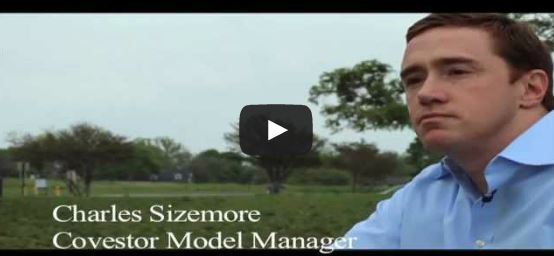Covestor model: Market Neutral Growth
Last month, equity markets entered what I believe is a new, long term downtrend. Most investors will be late in realizing this change in long term trend. The consequences of this recession to ordinary people will be quite negative and we are unfortunately facing harder times than most us have seen in our lifetimes.
The debt crisis in both the US and Europe will result in hyper-inflation in economies which have the ability the print money to pay their debts. The U.S. falls into this category, and our central bank has been freely exercising this power to create money out of thin air. To the degree that our budget deficit widens, the Federal Reserve will print more dollars. This is a sure bet, since the only alternative to printing more dollars is to default on our debt. We have to pay our bills somehow.
To illustrate the inflationary pressure we are experiencing, I’d like to draw an analogy to personal household finances. Imagine that a family lives in a town with 100 houses in it. This family’s house is modest. Though the house provides for their needs, it has a small yard, no garage and only one bathroom. This family’s house and 99 other houses in the town were made by the same contractor and are identical, with only one bathroom, no garage and tiny yards. One day, a new contractor arrives in the town and builds one house sparing no expense. This mansion has 100 acres of land, a five car garage, six bathrooms, and an Olympic sized indoor swimming pool. It has every luxury one could desire in a house. The contractor takes out an ad in the local newspaper offering the house for sale for $5M.
This family and all families in this town derive their income from the same factory and each family earns exactly $50K per year. The mansion is far too expensive for this family’s budget. But this family has a secret that gives them hope. They have a printing press hidden in their basement that nobody else knows about. This printing press can produce counterfeit money so authentic that it it’s indistinguishable from real legal tender. So this family prints $5M worth of counterfeit money and offers it to the contractor.
When they offer him this $5M, however, he tells them that he has already received a dozen other offers for $5M from their neighbors. Now, since all families in this town earned the same $50K per year, this family realizes that they are not the only ones with a secret printing press in their basement. Their 99 neighbors all have the ability to print unlimited money, and they all want to move out of their little houses and into the big mansion. Of course, this scenario will quickly escalate into a bidding war. The price of the mansion will rise as fast as the secret printers can print. The printing of money did not increase the number of mansions available in the town – it only increases the amount of money.
Eventually, the owner of the house will see that the dollars are unlimited and therefore actually have no value. He might demand payment in an alternate medium which has a practical value,such as food or wood or oil or other houses. This same scenario would play out when the family purchases its car, clothes, food, medical care and every scarce good and service imaginable.
The central banks around the globe all have their secret printing presses and are competing with one another for the same scarce resources. The act of printing money does not increase the amount of oil, food or metal available; it causes a bidding war with other players who also have access to unlimited money.
The devaluation of the dollar resulting from this ongoing bidding war between nations with their secret printing presses means it’s important to consider the value of one’s stock holdings against, for example, a diversified basket of commodities. In my view, a protection strategy against inflation is currently much more important than any stock selection strategy.





